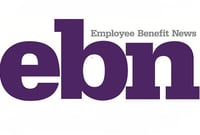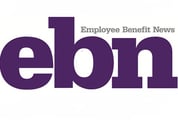Consolidation Corner
-
Blog
- 401k Cash Outs
- 401k Consolidation
- 401k Plan Termination
- America's Mobile Workforce
- Assisted Roll-in
- Auto Enrollment
- Auto Portability
- Auto Portability Simulation
- Automatic Roll-In
- Automatic Rollover
- Automatic Rollovers
- Boston Research Technologies
- CARES act
- Common Mistakes
- DIY Roll-In
- DOL Advisory Opinion
- EBRI
- Employee Benefit News
- ERISA Advisory Council
- Financial Services Roundtable
- Financial Wellness
- How-To
- In-Plan Consolidation
- Leakage
- Lifetime Plan Participation
- Lost Participants
- Managed Portability
- Mandatory Distributions
- MarketWatch
- Missing Participant IRA
- Missing Participants
- National Retirement Savings Cash Out Clock
- Participant Transition Management
- PLANSPONSOR
- Portability Services Network
- PSCA
- Public Policy
- RCH Services
- Retirement Income
- Retirement Plan Portability
- retirement research
- Retirement Savings Consolidation
- Retirement Savings Portability
- Roll-In
- Safe Harbor IRA
- Saver's Match
- Security
- Small Accounts
- Stale Dated Checks
- Synthetic Tenure
- Uncashed Check Services
- Uncashed Distribution Checks
- Video
- Webcast
- What is a Missing Participant?
Boston Research Technologies
Consolidation Corner Blog
Consolidation Corner is the Retirement Clearinghouse (RCH) blog, and features the latest articles and bylines from our executives, addressing important retirement savings portability topics.
This Earth Day, We are Reminded to Recycle 401(k) Savings, Instead of Adding to the Landfill of Safe Harbor IRAs
 On April 22, we will celebrate the 54th annual Earth Day, which gives us the opportunity to celebrate our planet’s natural surroundings and contemplate how we can help preserve them. The advent, and ongoing expansion of recycling programs has enabled our society to reduce our waste—and although there is still quite a long way to go, we have evolved significantly from the post-World War II throwaway culture.
On April 22, we will celebrate the 54th annual Earth Day, which gives us the opportunity to celebrate our planet’s natural surroundings and contemplate how we can help preserve them. The advent, and ongoing expansion of recycling programs has enabled our society to reduce our waste—and although there is still quite a long way to go, we have evolved significantly from the post-World War II throwaway culture.
Auto Portability is Poised to Make an Even Bigger Impact in 2024
 On the last day of 2023, a key provision of the SECURE 2.0 Act—increasing the limit on small 401(k) accounts subject to automatic rollovers into safe-harbor IRAs from $5,000 to $7,000—went into effect.
On the last day of 2023, a key provision of the SECURE 2.0 Act—increasing the limit on small 401(k) accounts subject to automatic rollovers into safe-harbor IRAs from $5,000 to $7,000—went into effect.
Auto Portability: It’s About the Participants
 It’s sometimes easy to forget a basic tenet about auto portability.
It’s sometimes easy to forget a basic tenet about auto portability.
Auto portability is about the participants.
And not just any participants. Auto portability is about the participants who truly need it, and – according to multiple surveys – have expressed a strong preference for it.
To Show Participants You Care, Help Them Avoid Cashing Out Post-CARES Act
 It goes without saying that we are not living in normal times. The health and safety of our families and communities are paramount, and measures to ease burdens and hardships are always appreciated. These include the Coronavirus Aid, Relief, and Economic Security (CARES) Act, the massive fiscal stimulus signed into law on March 27, 2020.
It goes without saying that we are not living in normal times. The health and safety of our families and communities are paramount, and measures to ease burdens and hardships are always appreciated. These include the Coronavirus Aid, Relief, and Economic Security (CARES) Act, the massive fiscal stimulus signed into law on March 27, 2020.
Think Twice Before Tapping Your 401(k) for Short-Term Needs
 In extraordinary times like these, it is understandable that Americans need emergency cash injections to pay expenses. But before tapping their 401(k)s, workers should at least follow the advice offered by the old saying “think twice,” and consider all sources of short-term cash, before prematurely cashing out their 401(k) savings (WSJ: “The Emergency 401(k) Button,” March 20). Even if tax and other penalties on 401(k) cash-outs during this period are waived, Americans who cash out forfeit the additional savings which the sums they receive would have accrued by retirement, had they remained incubated in the U.S. retirement system.
In extraordinary times like these, it is understandable that Americans need emergency cash injections to pay expenses. But before tapping their 401(k)s, workers should at least follow the advice offered by the old saying “think twice,” and consider all sources of short-term cash, before prematurely cashing out their 401(k) savings (WSJ: “The Emergency 401(k) Button,” March 20). Even if tax and other penalties on 401(k) cash-outs during this period are waived, Americans who cash out forfeit the additional savings which the sums they receive would have accrued by retirement, had they remained incubated in the U.S. retirement system.
The Institutionalization of Portability is Key to Reducing Cash-Out Leakage
 Although defined contribution plan recordkeepers and sponsors have made considerable progress helping participants retain savings through reduced fees over the past decade, job-changing participants’ 401(k) savings account balances remain in a state of dangerous limbo, as participants often succumb to the temptation of cashing out. EBRI reports that at least 4.5 million—or 40%—of job-changing participants cash out $92.4 billion in 401(k) savings from the U.S. retirement system every year.
Although defined contribution plan recordkeepers and sponsors have made considerable progress helping participants retain savings through reduced fees over the past decade, job-changing participants’ 401(k) savings account balances remain in a state of dangerous limbo, as participants often succumb to the temptation of cashing out. EBRI reports that at least 4.5 million—or 40%—of job-changing participants cash out $92.4 billion in 401(k) savings from the U.S. retirement system every year.
How Sponsors can Help Minorities Save More for Retirement
 Every year, our nation’s retirement system loses $92 billion in savings because 401(k) plan participants prematurely cash out their accounts when they change jobs. This is the most recent estimate from the Employee Benefit Research Institute (EBRI), and while this finding affects all American workers, minorities are hit hardest.
Every year, our nation’s retirement system loses $92 billion in savings because 401(k) plan participants prematurely cash out their accounts when they change jobs. This is the most recent estimate from the Employee Benefit Research Institute (EBRI), and while this finding affects all American workers, minorities are hit hardest.
Understanding and Solving the Problem of Women’s 401(k) Cashout Leakage
 On May 22nd, at a Women’s Institute for a Secure Retirement (WISER) roundtable addressing strategies, choices and decisions for women’s retirement income, important new data was presented that highlights the challenges faced by women in preserving their 401(k) savings when changing jobs – particularly for women with balances less than $5,000.
On May 22nd, at a Women’s Institute for a Secure Retirement (WISER) roundtable addressing strategies, choices and decisions for women’s retirement income, important new data was presented that highlights the challenges faced by women in preserving their 401(k) savings when changing jobs – particularly for women with balances less than $5,000.
No Plan is an Island
A New Solution to Tackle the Old Problem of Missing Participants
 Despite differences big and small, all retirement plan sponsors and record-keepers experience at least one common problem—the seemingly intractable incidence of participants who have left behind small accounts in the plans sponsored by their former employers and failed to update their address when they subsequently change residence, a.k.a. missing participants.
Despite differences big and small, all retirement plan sponsors and record-keepers experience at least one common problem—the seemingly intractable incidence of participants who have left behind small accounts in the plans sponsored by their former employers and failed to update their address when they subsequently change residence, a.k.a. missing participants.
-
Blog
- 401k Cash Outs
- 401k Consolidation
- 401k Plan Termination
- America's Mobile Workforce
- Assisted Roll-in
- Auto Enrollment
- Auto Portability
- Auto Portability Simulation
- Automatic Roll-In
- Automatic Rollover
- Automatic Rollovers
- Boston Research Technologies
- CARES act
- Common Mistakes
- DIY Roll-In
- DOL Advisory Opinion
- EBRI
- Employee Benefit News
- ERISA Advisory Council
- Financial Services Roundtable
- Financial Wellness
- How-To
- In-Plan Consolidation
- Leakage
- Lifetime Plan Participation
- Lost Participants
- Managed Portability
- Mandatory Distributions
- MarketWatch
- Missing Participant IRA
- Missing Participants
- National Retirement Savings Cash Out Clock
- Participant Transition Management
- PLANSPONSOR
- Portability Services Network
- PSCA
- Public Policy
- RCH Services
- Retirement Income
- Retirement Plan Portability
- retirement research
- Retirement Savings Consolidation
- Retirement Savings Portability
- Roll-In
- Safe Harbor IRA
- Saver's Match
- Security
- Small Accounts
- Stale Dated Checks
- Synthetic Tenure
- Uncashed Check Services
- Uncashed Distribution Checks
- Video
- Webcast
- What is a Missing Participant?
